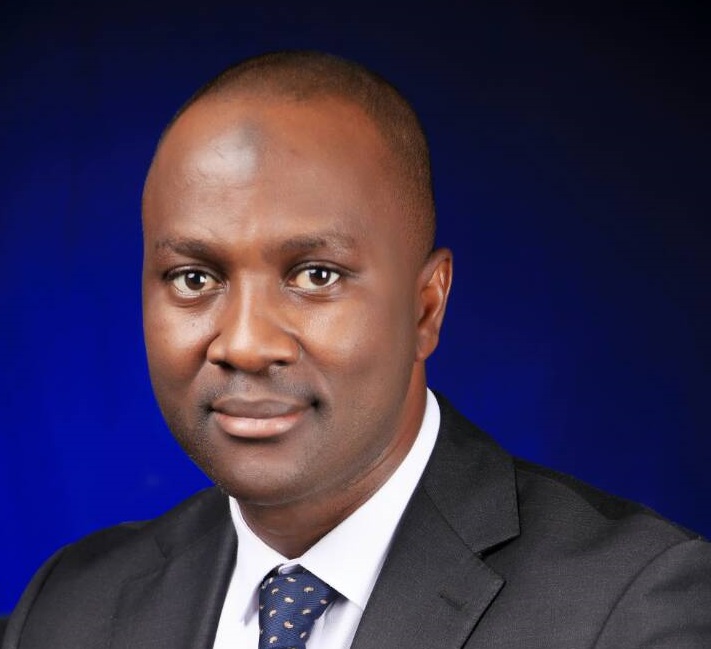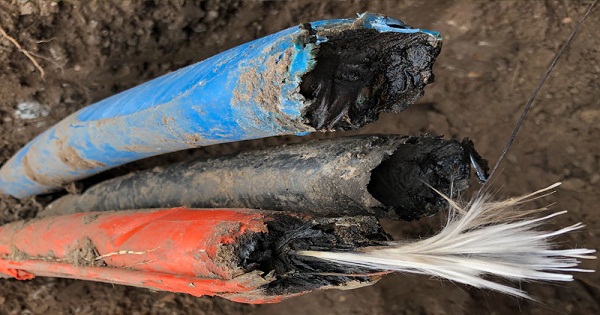Telecom
7 Things Gimba Mohammed of MainOne Would Tell Buhari In 30 Minutes

By peter oluka
Obviously, the information and communication technology (ICT) industry is critical to Nigeria’s economy. The pace of development brought about by the ever-evolving sector has permeated every facet of the economy.
The emergence of technology hubs across the country, and the growing efforts by young Nigerian “techpreneurs” in building mobile applications to solve challenges associated with health, education, financial inclusion, agriculture, and other socio-economic pain-point are evidences of ICTs’ potency to inject live into the economy through innovation and entrepreneurship processes.
The investments profile in the country’s telecommunications segment alone is on the upward swing, as it hit $70 billion (N21.4 trillion) in August 2017.
Achieved within a 16-year period, as disclosed by Professor Umar Danbatta, executive vice chairman of NCC, the investments moved from a mere $50 million in 2001 to its current state.
However, the industry is faced with some challenges. Interestingly, the Presidency has noticed how these factors are undermining the industrial growth.
Recall, an executive fiat on “Ease of Doing Business”, has been on the front burner as Government of the day seeks measures to arrest the situation and ensure business community has the confidence to continue to support the economy.
Nevertheless, Gimba Mohammed, head, Regional Business/Oil and Gas at MainOne believes there are areas requiring urgent Government interventions.
When asked if had 30 minutes with President Muhammadu Buhari to speak about ICT, what policies would he like to see enacted in Nigeria?
Mohammed said the main points would be:
Execute Critical Elements Of The Broadband Plan
There are elements of the Broadband Policy that need to be quickly implemented, if Nigeria is to attain 30% fixed broadband penetration across Nigeria.
Quickly Execute InfraCo in Lagos
Lagos can be successful case study. We have challenges implementing our InfraCo license and appeal to the government to help resolve this.
Enforce Data Residency Policies With Incentives
Support indigenous players. We should begin to emulate more developed countries include China, most countries in Europe etc who have data domiciliation laws. We must identify and host critical national data in-country.
Focus On Big Ticket Items
The President should focus on big ticket items e.g Infrastructure, Healthcare, Education, Power, Security, Economic stability and leave Private Sector to do others.
The submarine cable build to Niger delta should be part of the agenda to create jobs for the teeming youths.
The Organised Private Sector is willing to support the Government, but there must be certain things in place.
Protect ICT Infrastructure as Critical National Infrastructure
This has been on the front burner for a long time. ICT infrastructure deserve to be protected just like water, electricity and other critical infrastructure. The Legislature ought to work with the Executive to actualise an all encompassing policy document in this regard.
Take Government Online
All MDAs etc., must be accessible online, have a website and ensure transparency and openness and
Harmonise Taxes and Regulation
Harmonise Taxes and Regulation and ensure Nigeria’s Ease of Business rankings via Rule of Law and investment protection.
Telecom
Telecom Subscribers Decline By 43m in One Year

At least 43 million lines were disconnected from networks service providers for non compliance with the National Identification Number (NIN) SIM linkage policy of the federal government, report has revealed.

The number of teleocm subscriber in the country fell by 43.7 million subscribers from 216,974,742 in April 2024 to 172,948,309.
This effectively reduced teledensity from 100.09 per cent to 79.78 per cent.
Teledensity is calculated based on Nigerian Population Commission’s projected population figure of 216 million, according to the NCC.
A breakdown showed that Airtel subscribers dropped from 62,933,351 in April 2024 to 58,586,914 in April 2025.
Globacom witnessed a drop from 62,055,248 in April 2024 to 20,607,726 in April 2025.
The amount of customers lost by Globacom was 20,607,726 making it the biggest loser.
9Mobile subscribers dropped to 2,964,445 in April 2025 from 8,956,568 subscribers in April 2024.
However, MTN Nigeria Communications was the only teleocm company that survived the shock.
MTN saw a rise in its subscribers from 82,716,236 in April 2025 to 90,508,170 in April 2025.
Analysis showed that the 43.7 million subscribers’ loss was a result of the disconnection of unregistered lines.
“The removal of Subscriber Identification Modules (SIMs) that are not linked to verifiable National Identification Numbers (NINs) and the rectification of a major discrepancy by a Mobile Network Operator explain the significant drop in Nigeria’s telecoms subscriber base,” the regulator explained in the report.
In 2022, the Ministry of Communications and Digital Economy announced the NIN-SIM linkage policy was for national security and accuracy of the national SIM ownership database.
Subscribers whose lines were not associated with a verified NIN were advised to complete NIN verification to reactivate their lines.
After multiple deadlines for compliance, the NCC set a final deadline of September 14, 2024, for Mobile Network Operators (MNOs) to complete the linkage process.
Telecom
IHS Nigeria, NSCDC Partner to Protect Telecoms Infrastructure

IHS Nigeria, a subsidiary of the IHS Towers group, announced on Thursday it has formed a strategic partnership with the Nigeria Security and Civil Defence Corps (NSCDC) to increase protection of critical telecoms infrastructure across Nigeria.

Under an MoU signed by both organizations, IHS Nigeria and the NSCDC plan to develop and implement strategies aimed at safeguarding IHS Nigeria’s assets and other telecoms infrastructure from theft and sabotage.
IHS Nigeria owns and operates over 16,000 towers in Nigeria and has deployed over 15,000km of fibre.
The NSCDC will aim to support IHS Nigeria for areas such as site surveillance, emergency responses and incident reporting.
That includes assisting in matters related to tower decommissioning as well as investigating, apprehending and prosecuting alleged site violators.
Mohamad Darwish, CEO, IHS Nigeria, said the collaboration with NSCDC was a key step to enhancing the resilience, reliability and availability of telecoms connectivity in Nigeria.
“By working closely with the NSCDC, which enforces the law that designates telecommunication towers as critical national information infrastructure, we aim to create a safer and more secure environment for our operations, including our infrastructure, and more importantly, ensure better quality of service for all users in Nigeria,” he said in a statement.
Vandalism and theft of fibre cables, backup batteries and other telecoms infrastructure has been a growing problem in Nigeria – so much so that Nigerian president Bola Tinubu declared telecoms infrastructure to be Critical National Information Infrastructure (CNII) via an executive order last year.
Telecom
NCC Orders Telcos to Compensate Subscribers for Outages More than 24 Hours

Nigerian Communications Commission (NCC) has issued a fresh directive mandating telecom operators to compensate subscribers when major service outages last longer than 24 hours.

The commission also mandated telecom licensees in Nigeria to inform consumers of major service outages on their networks through media channels, stating the cause(s) of the service interruption, and the area(s) affected by the service interruption/outage, as well as the time that would be taken to restore service.
Consumers must also be informed one week in advance where operators have planned service outages.
This development, contained in the “Directive on Reportage of Major Network Outages by Mobile Network Operators (MNOs),” is part of the Commission’s drive to ensure timely resolution of outages, enhance quality of experience for telecom consumers, and keep consumers informed.
According to the Directive, Mobile Network Operators, Internet Service Providers and other operators that provide last mile services will also provide proportional compensation, including extension of validity, as may be applicable and in line with the provisions of the Consumer Code of Practice Regulations, where any major network outage continues for more than 24 hours.
It identifies three types of major outages to include: Any network operational condition such as fibre cut due to construction/access issues/theft & vandalism and force majeure that impacts five per cent or more of the affected operator’s subscriber base or five or more Local Government Areas (LGAs); having an occasion of unplanned outage of, or complete isolation of network resources in 100 or more sites or five per cent of the total number of sites (whichever is less) or 1 cluster that lasts for 30 minutes or more; and lastly, any form of outage that can degrade network quality in the top 10 states based on traffic volume as specified by the Commission from time to time.
In furtherance of this, the Commission has further directed that all Major Outages are to be reported by operators through the Commision’s Major Outage Reporting Portal, which is accessible to the public through the Commission’s website, www.ncc.gov.ng. The portal additionally discloses the identity of the culprit responsible for the disruption.
Commenting on the Directive and the Major Outage Reporting Portal, the Director, Technical Standards and Network Integrity, Engr. Edoyemi Ogor stated that, “The Commission has trialed the reporting process and portal with operators for some months now before issuing the directive.
“By providing consumers and stakeholders in the telecommunications industry with timely and transparent information on network outages, we are entrenching a culture of accountability and transparency. This approach also ensures that culprits are held responsible for sabotage to telecommunications infrastructure.
“This also aligns with our broader commitment to the effective implementation of the Executive Order signed by President Bola Ahmed Tinubu, which designates telecommunications infrastructure as Critical National Information Infrastructure (CNII). It reinforces the need to safeguard these assets, given their centrality to national security, economic stability, and the everyday lives of Nigerians,” Engr Edoyemi Ogor said.

 E-Financial2 days ago
E-Financial2 days agoNGX Clears Fidelity Bank MD of Insider Trading Allegations

 News2 days ago
News2 days agoToll Collection on Lagos-Calabar Highway Begins December

 Telecom3 hours ago
Telecom3 hours agoNCC Orders Telcos to Compensate Subscribers for Outages More than 24 Hours

 E-Financial2 hours ago
E-Financial2 hours agoSERAP Drags CBN to Court over Alleged Failure to Disclose LG Allocations

 E-Business2 hours ago
E-Business2 hours agoNigeria Launches Cybercrime Team with Commonwealth, UK Support

 Telecom2 hours ago
Telecom2 hours agoTelecom Subscribers Decline By 43m in One Year

 Telecom2 hours ago
Telecom2 hours agoIHS Nigeria, NSCDC Partner to Protect Telecoms Infrastructure

 General News3 hours ago
General News3 hours agoHEDA Sues FG, Oil Giants over Alleged Unlawful Oil Licence Transfer





















